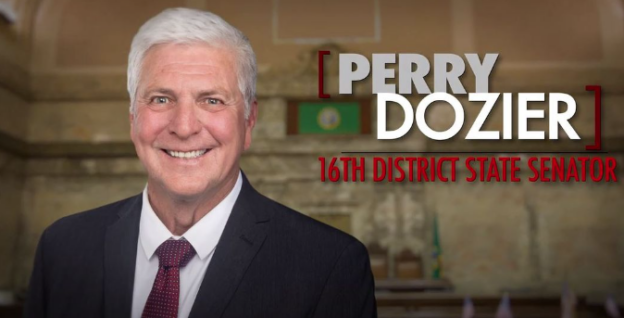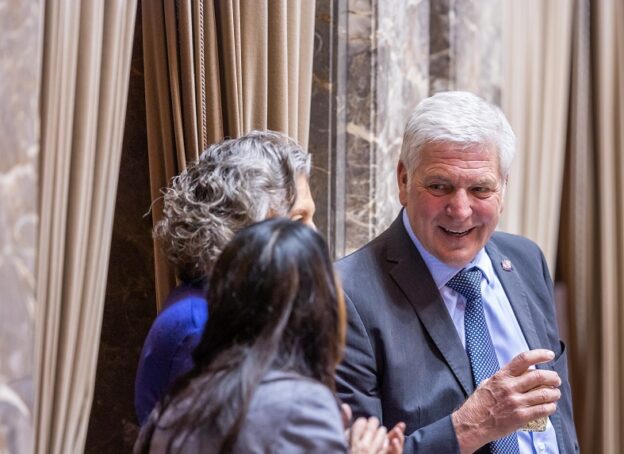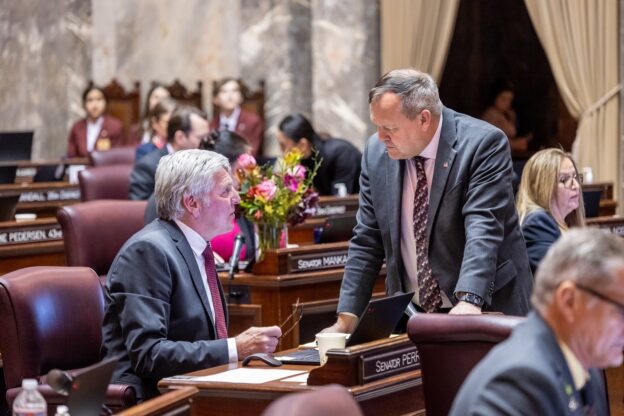One ‘yes,’ one ‘no’ on Senate budgets
Let’s take the budgets first. The capital budget is mostly about construction – building, fixing and remodeling things – and other physical assets, like parks, land for recreation and wildlife habitat, and facilities for community activities. It is rarely controversial and often is passed unanimously.
I don’t know exactly how the Democrats go about providing input for that budget, but in the Senate Republican caucus we offer a list of requests based on discussions with constituents, and our capital-budget team fits in as many requests as it can.
I voted yes for the Senate’s version of the capital budget for 2023-25 (SB 5200), which contains nearly $10 million for projects throughout our legislative district. The biggest single item for our area is a major investment in behavioral health capacity, but there also would be support for library improvements, fish-passage projects, parks, recreational facilities, local schools and much more.
From a statewide perspective, the Senate capital budget would invest more than $500 million toward affordable housing, via the state’ Housing Trust Fund. That’s a far better approach to dealing with Washington’s shortage of housing (for prospective buyers, renters and people who are without homes) than the $4 billion housing referendum the governor has been pitching.
I haven’t looked in detail at what the House capital budget would offer locally, but over the next few weeks the negotiations between the two chambers will produce a final package for us to consider again.
The Senate operating budget is a different story. I like the fact that the majority Democrats were very inclusive of Republican ideas this time around, and as a result, the budget reflects our strong emphasis on restoring public safety, dealing with the affordability crisis and supporting some specific needs in K-12. As a member of the education committee, I am particularly glad to see a significant investment toward addressing K-12 learning loss ($70 million) and the extraordinary level of additional support it offers to special-education students and their families ($800 million!).
I also appreciate that the spending increase in the Senate budget is kept to 8% — which is still a lot, but far less than the average growth in spending over the past few cycles. Also, it balances without new taxes, and leaves a solid amount in reserve. Republicans deserve much of the credit for that restraint, which is tremendously important considering the uncertain times ahead for our state economy.
In the end, however, I had to withhold my support for this budget, even though it passed with a strong bipartisan vote. The $500,000 in the Senate budget for yet another state study involving the four lower Snake River dams was the main deal-breaker. To quote my southeast Washington neighbor, 9th District Sen. Mark Schoesler, the Snake River dams in Washington have to be the “most studied dams in America.” Because they are federal dams, however, the state has no control over their future. I see no point in sinking taxpayer dollars into having the Department of Ecology look at how to support irrigation in our region should the dams be removed – because they should not be removed.
On top of that, there’s nothing in the budget to address the issue I and other Republican senators tried to get at with Senate Bill 5728. The state (Ecology, again) has failed to implement an exemption that would protect farmers, trucking companies, and barge operators from the higher costs connected to the majority Democrats’ so-called “Climate Commitment Act.”
As with the capital budget, the Senate and House will negotiate a final version of the 2023-25 operating budget for each legislator to consider. And within the next week we should see proposed transportation budgets from the two chambers.































